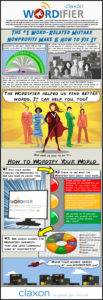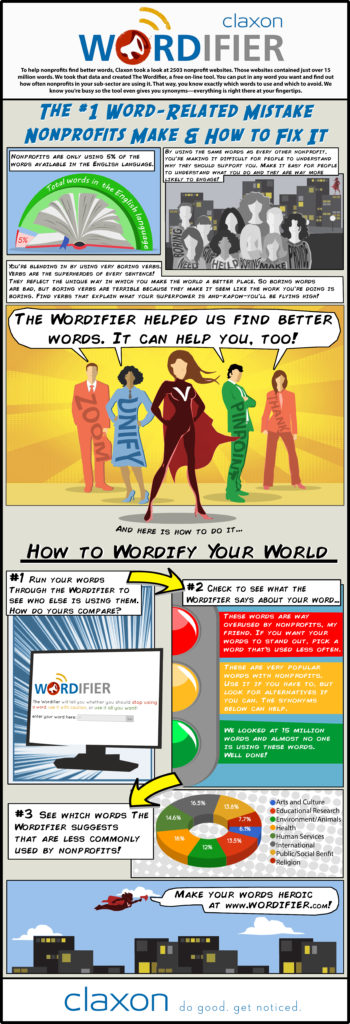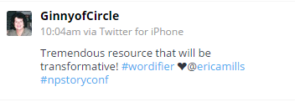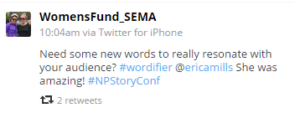
When we did the research for The Wordifier–the free online tool that helps you increase your impact by amplifying your words–we stumbled upon a very interesting (and startling) finding: more than 50% of nonprofits don’t have a website.
Actually, to be specific, what we can say is that we are 95% confident that 46.33% to 49.03% of nonprofits DO have websites. Meaning we’re 95% confident that a tidge over 50% do NOT.*
Think about that for a minute: A potential donor hears about your organization. They want to learn more. They go online. They search for your organization. If you’re a nonprofit, there’s only a 50/50 chance they’ll find you because there’s only a 50% chance you’re easily found online. That’s a VBP: a Very Big Problem.
No matter how amazing, compelling, and wonderous your work is, people aren’t going to put in a lot of effort into learning more about you. They’re busy and have bigger fish to fry.
Bottom line: The easier you make it for people to find you, the easier you make it for them to support your work.
Your next step: Search for your organization’s name on-line. Do you show up on the first page of search results? If not, making that happen should be a top priority for your organization.
***Knowing which words to use when talking about your organization is key to your on-line strategy. If you’re unsure about the words you’re using, check out Claxon University’s course, Words on a Mission. Might be the Rolaids for your messaging-related indigestion.***
*Just so we’re clear on what we mean by “no website”: we mean when pulling our sample, we didn’t find an independent url for ~50+% of the nonprofits for which we were searching. Some might have had an online presence, e.g. Facebook pages or a webpage on a connected, but separate organization. For instance, it’s very common for Friends of the Library and PTAs/PTSAs to have a web presence as a page on the related organization’s site, but often not their very own site. Other organizations, businesses, social clubs, or even other nonprofits with a foundation or scholarship might have mentioned the 501c3 arm, or maybe just mention that they have a scholarship, but it is the parent organization that has the website, so that didn’t count.
 *A Super Quick Primer on Content Words and Function Words*
*A Super Quick Primer on Content Words and Function Words*


 In sifting through the data from our
In sifting through the data from our 




